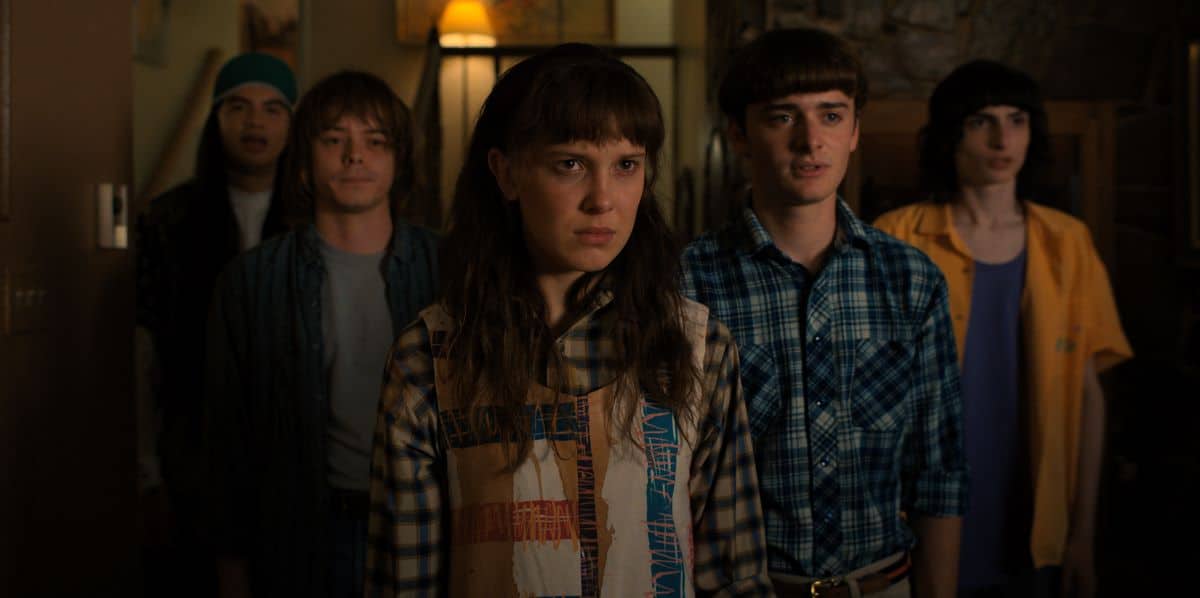4 minute read
A little over 20 years ago, at the turn of the 20th century, many assumed that in 2022 humans would be living in a galactic age, taking summer trips to the moon, and riding flying cars around futuristic cities. However, it turns out that everyone’s still taking regular planes and space trips are far from becoming a commercial vacation choice for the general public any time soon.
While many aspects of our daily life have been affected by technology, including the way we communicate and interact with each other, our rapid transition into the digital age has sparked a new obsession with the past and a new wave of nostalgia. In fact, this idea has been widely debated and it seems that our love for retro is just a natural reaction to the ever-expanding and complex age we now live in. Moreover, in times of disorder and rapid development, when the future appears uncertain, people tend to return to what they’ve always known and is familiar to them.
Age of Remakes and Reboots
In the TV and film industries, this has been particularly noticeable as it seems that these industries have become obsessed with the past. While remakes have been a recurrent strategy in the film industry for decades, particularly in the past five years, they’ve inundated cinema. For instance, in 2019, out of the ten highest-grossing films at the worldwide box office, nine were either a reboot, a remake or a sequel.
When it comes to the movie industry, it is easy to understand why this type of production is so popular: they require less investment than original productions, usually, characters are already known by audiences, and it can be fun to update old concepts or stories to the present age. Classic titles such as Jumanji, Ghostbuster and Jurassic Park have all had new films released in the past few years, which has, in many cases, given these franchises a new lease of life.
Jumanji, for instance, has not only inspired two sequels to the original 1995 film, but it has also spawned a new PS4 video game, featuring the newer characters, and even a five-reel video slot available at Casinojoy. This online slot features many of the symbols and aesthetics from the films, including the famous board game and soundtrack. Clearly, the regurgitation of this 90s classic has gone down well with modern audiences and arguably appealed to a wider demographic, including new fans.
Nonetheless, this is only one side effect of this new nostalgic spree. Not only are studios increasingly focusing on remakes, reboots and sequels, but film and TV shows are also increasingly set in the past. Some of the biggest shows of the 2010s, such as Mad Man, Boardwalk Empire and Stranger Things are all homages to older times. The same thing came to be said for the film industry, with six out of the ten Best Picture Winners of the 2010s revolving around historical events/being set in past decades.
An Unparalleled Age
In the past hundred years, it has been possible to almost map each decade perfectly according to its trends, subcultures, and group identities. It happened in the 60s with the hippies. In the 70s with punk and disco. In the 80s with hip-hop and rave culture. In the 90s with various expressions of dance music and grunge. Even in the early 2000s with the rise of industrialized pop music, as reported by CBC. However, even the hip pop and indie scenes of the late 2000s were already a form of revival of the 1960s and 1980s.
As a result, the period between 2008 and the current days is often described as a void in the entertainment industry in the sense that it seems that while previously dominating genres, such as rock, have become obsolete, we can’t seem to escape old tropes and previous trends. It is as if the mainstream culture in the last decade is continuously devouring itself, in increasingly shorter cycles, making it hard for any breakthrough to come by. In a piece by Global News, it is highlighted that, in turn, this makes it hard to predict which musical acts will be remembered by future generations.
It seems that the time we are living is unlike any other. Today, perhaps for the first time in history, humans can access different types of information, works, and records of the past by just surfing the Internet. In this context, we feel like we are living at a timeless age, where past, present, and future are more connected than ever. This doesn’t necessarily mean that nostalgia will dominate entertainment forever, only that we are living through an age where we have the resources to go beyond our age and explore what led us here.





